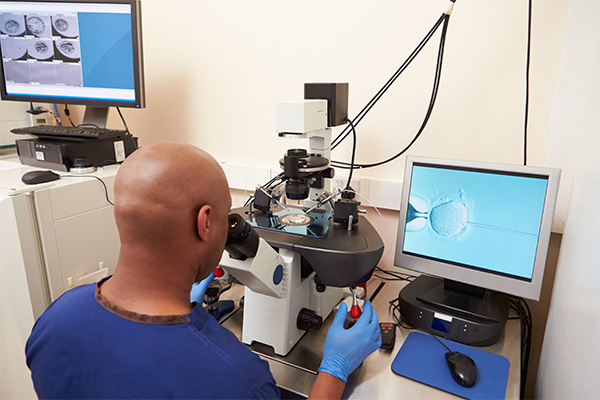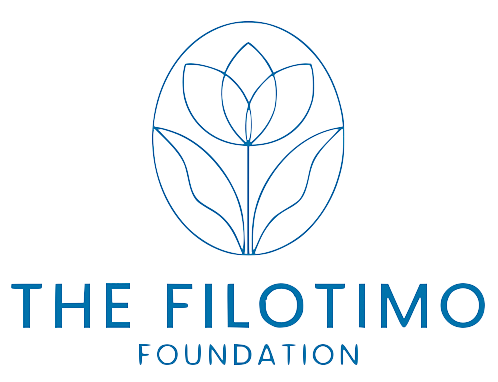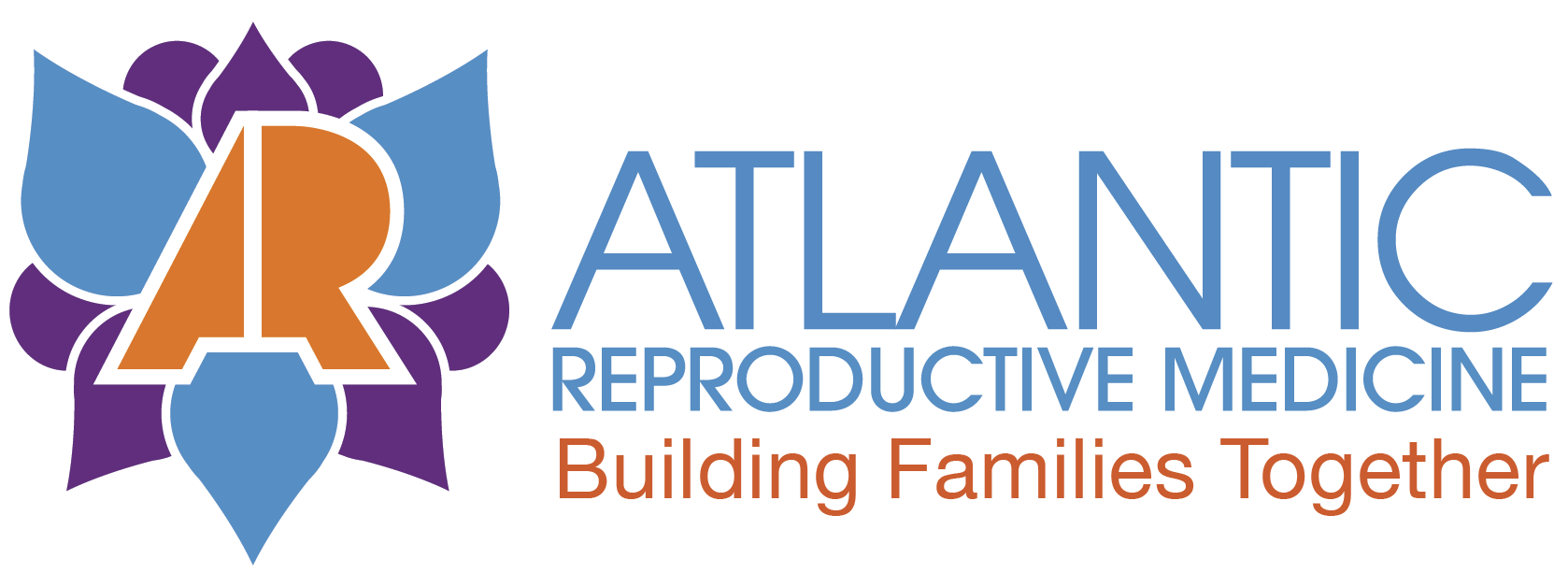
Cystic Fibrosis and IVF
Cystic fibrosis (CF) is a genetic disorder that affects both females and males. It can often impact their fertility. While some individuals with CF are able to conceive naturally, others may need assisted reproductive technologies (ART), such as in vitro fertilization (IVF), to have biological children.
What is Cystic Fibrosis?
Cystic fibrosis (CF) is a rare genetic disorder affecting about 40,000 people in the United States. It is caused by mutations in the CFTR gene, which leads to the production of sticky and thick mucus in the airways and along the digestive tract. This thick mucus can clog the airways in the lungs, leading to breathing difficulties, recurrent lung infections, and, ultimately, lung damage.

While there is no cure for cystic fibrosis, advancements in treatment and management have significantly improved outcomes and quality of life for individuals with CF.
Treatment for CF typically involves medications to help clear mucus from the lungs, prevent and treat infections, improve digestion, and manage symptoms. Exercise, physical therapy, , and a healthy diet are important elements in managing cystic fibrosis.
Understanding Cystic Fibrosis and Fertility
While CF creates unique fertility challenges, people with CF can still experience the joy of parenthood with the help of ART and IVF. Cystic fibrosis IVF success is an exciting and promising development in the field of fertility, however, it is important as a CF patient to have open discussions with your CF care team, partner, and an experienced fertility specialist about family planning and the implications of pregnancy and having a family.
Female with CF can be Biological Mothers
In vitro fertilization (IVF) can be a popular option among women with CF who have a difficult time getting pregnant the “natural” way or whose partners are found to be genetic carriers.

Male with CF can be Biological Fathers
Most men with CF (97-98%) are infertile due to a blockage or absence of the sperm canal, known as congenital bilateral absence of the vas deferens (CBAVD).
But, men with CF are not sterile. Sperm production in the testicles is normal in the majority of men with CF and CBAVD. Therefore, most men with CF can still have biological children through ART.
CF and CBAVD (Congenital Bilateral Absence of the Vas Deferens)
For men with CF, the majority will have obstructive azoospermia. This means that while sperm production is normal, the sperm is unable to leave the testicles. The reason for this is that CF mutations cause abnormalities in the formation of the vas deferens, or the sperm ducts. Men with CF often have low or very low semen volume, which is a clue that an abnormality exists. A semen analysis can be obtained to verify the absence of sperm in the semen sample.
Men with CF will almost always be required to undergo surgical sperm retrieval. This can be done as either an epididymal sperm retrieval, a testicular sperm retrieval, or some combination of the two.
After a complete evaluation with a reproductive urologist who works closely with a fertility team and an andrology lab, a surgical plan for sperm retrieval can be discussed. Ultimately, the surgical approach will be based on a patient’s particular anatomy and evaluation.
The sperm retrieved during surgery will be frozen for later use in the IVF process. It is very important to have sperm retrieval done in a reproductive medicine center that is comfortable taking care of both male and female patients with CF due to the unique medical needs and the inherent benefits of having comprehensive fertility care for both partners.
Is there a right time for patients with cystic fibrosis to conceive?
There is no right time to conceive for individuals with CF. Every patient and couple is different. Discussing one’s individual circumstances openly and carefully with an experienced and trusted fertility specialist is a critical first step in the fertility journey.
For males with CF, it is important to recognize that healthy bodies make healthy sperm. If a male with CF has recently recovered from a hospitalization or infection, it is wise to wait at least three months to give the body time to heal before having a sperm retrieval.
Another consideration is whether a patient with CF has had a lung transplant or is considering having a lung transplant. It is generally better to undergo the procedure for sperm retrieval while an individual is as healthy as possible. Therefore, the procedure should be considered before the pulmonary disease has become so severe that a transplant is being considered, or it should be done many months after the transplant and after healing has taken place.
Sperm Retrieval and Trifafta
Trikafta is a medication that has dramatically transformed the care of patients with cystic fibrosis. Approved for use in 2019, Trikafta is a drug that improves symptoms of cystic fibrosis for patients with at least one delta F508 mutation, the most common CFTR gene mutation that causes CF.
In the post-Trikafta era, men with CF have seen significant improvements in their health as well as in their sperm with Trikafta treatment. If a male patient is considering initiation of treatment with Trikafta as well as pursuing fatherhood at about the same time, it is better to wait for Trikafta to take effect before the sperm retrieval. The sperm quality is generally better after and during treatment with Trikafta.
CF and Assisted Reproductive Technology (ART) with IVF
Assisted Reproductive Technologies (ART) include various techniques such as IVF, intrauterine insemination (IUI), surrogacy, and many other fertility therapy techniques. One of the most common types of ART is IVF, which involves manually combining an egg and sperm in a laboratory dish and then transferring the embryo into the uterus.

Cystic Fibrosis IVF Treatment
For couples with a male CF partner desiring biological children, the first step is to consult a fellowship-trained urologist and fertility specialist who can perform a full evaluation for sperm production followed by a surgical sperm retrieval. The intended mother of the child will also need to have a complete evaluation in order to prepare for the IVF process of creating an embryo with the man’s sperm to implant into her uterus.
Preimplantation Genetic Testing
Preimplantation genetic testing for monogenic/single gene defects (PGT-M), previously known as preimplantation genetic diagnosis (PGD), can be used with IVF to test for over 600 rare genetic conditions, including Cystic Fibrosis. This allows patients to choose only to place healthy embryos into the womb.
When one partner either has CF disease or is a carrier for CF, it is imperative that the other partner undergo CF testing as well prior to any fertility treatment. If the other partner is also found to have a mutation or is a carrier for CF, preimplantation genetic testing is recommended. Therefore, PGT-M is an important consideration for couples in which both partners have mutations in the CFTR gene that causes CF. When both partners have mutations, the embryos can be tested to see whether they harbor the mutation or are at risk for having CF. This technology is safe and effective, and it should be discussed with the couple’s fertility specialist team.
All of the offspring of a patient with cystic fibrosis disease will be carriers for cystic fibrosis and will be at risk for having a child with cystic fibrosis if their future partner is also a carrier. This important fact should be considered for future generations of the family tree. It’s important to have open discussions with your CF care team and partner about family planning, the possibilities for IVF for CF carriers, and the implications of having a family and pregnancy.
Finding a Fertility Clinic Committed to CF Patients
Because every fertility journey is unique, patients with CF can benefit immensely by working with a clinic that is committed to their unique needs and offers both male and female fertility specialists and treatments within one clinic. Such a clinic ensures highly personalized, comprehensive, and collaborative care.
Atlantic Reproductive Medicine’s Partnership with Filotimo Foundation

The Filotimo Foundation provides support and resources to couples and individuals facing the challenges of CF. A primary focus of the Filotimo Foundation is to help couples experiencing infertility related to CF.
The word Filotimo (fee-LOH-tee-moh) comes from a Greek ideology that reflects an attitude towards others and humanity. It means showing empathy, compassion, and generosity without expecting anything in return, taking pride in doing what is right and honorable, and remaining humble at the same time.
Atlantic Reproductive Medicine is proud to be the trusted reproductive medicine partner of the Filotimo Foundation for couples experiencing infertility. If you or your partner has CF resulting in infertility, please visit www.filotimofoundation.com to learn more about resources and financial support that may be available for infertility-related treatment expenses at Atlantic Reproductive Medicine.
If you have any questions about CF and fertility or any other fertility treatments, Atlantic Reproductive Medicine is here to provide the highest level of personalized fertility care.
The process is simple:
- Visit www.filotimofoundation.com
- Fill out the “Request Assistance” form on the Filotimo Foundation website.
- Filotimo will connect with the couple to learn about their journey with infertility.
- A request is sent to Atlantic Reproductive Medicine to set up appointments.
- Atlantic Reproductive Medicine team of physicians meet and consult with the couple to create a treatment plan for Filotimo’s review.
- Filotimo contacts the couple to determine their potential financial assistance and cover a portion or all of the fertility treatment cost if affordability is an issue.
Additional sources and resources to support those with CF:
- Filotimo Foundation: www.filotimofoundation.com
- Project CF Spouse: https://www.projectcfspouse.org/about
- Hope for Fertility: https://www.hopeforfertility.org/grant-recipients/
- CFreshc: https://cfreshc.org/about-us/
- Colie Creations: https://www.coliecreations.org/
At Atlantic Reproductive, we have some of the country’s most highly-trained female fertility specialists, Dr. Susannah Copland and Dr. Mary Peavey. Atlantic Reproductive Medicine also has one of the most highly-trained and experienced male fertility experts in the world. Dr. Matt Coward, a North Carolina native, is a renowned urologic microsurgeon specializing in treating male fertility. He is one of the only reproductive urologists in the region offering microsurgical male fertility procedures within the collaborative setting of an in vitro fertilization (IVF) practice.
Atlantic Reproductive offers the latest treatment advancements, technologies, and testing with state-of-the-art embryology and andrology labs–all in one clinic.
Contact us to schedule a preconception counseling appointment with one of our experts.
